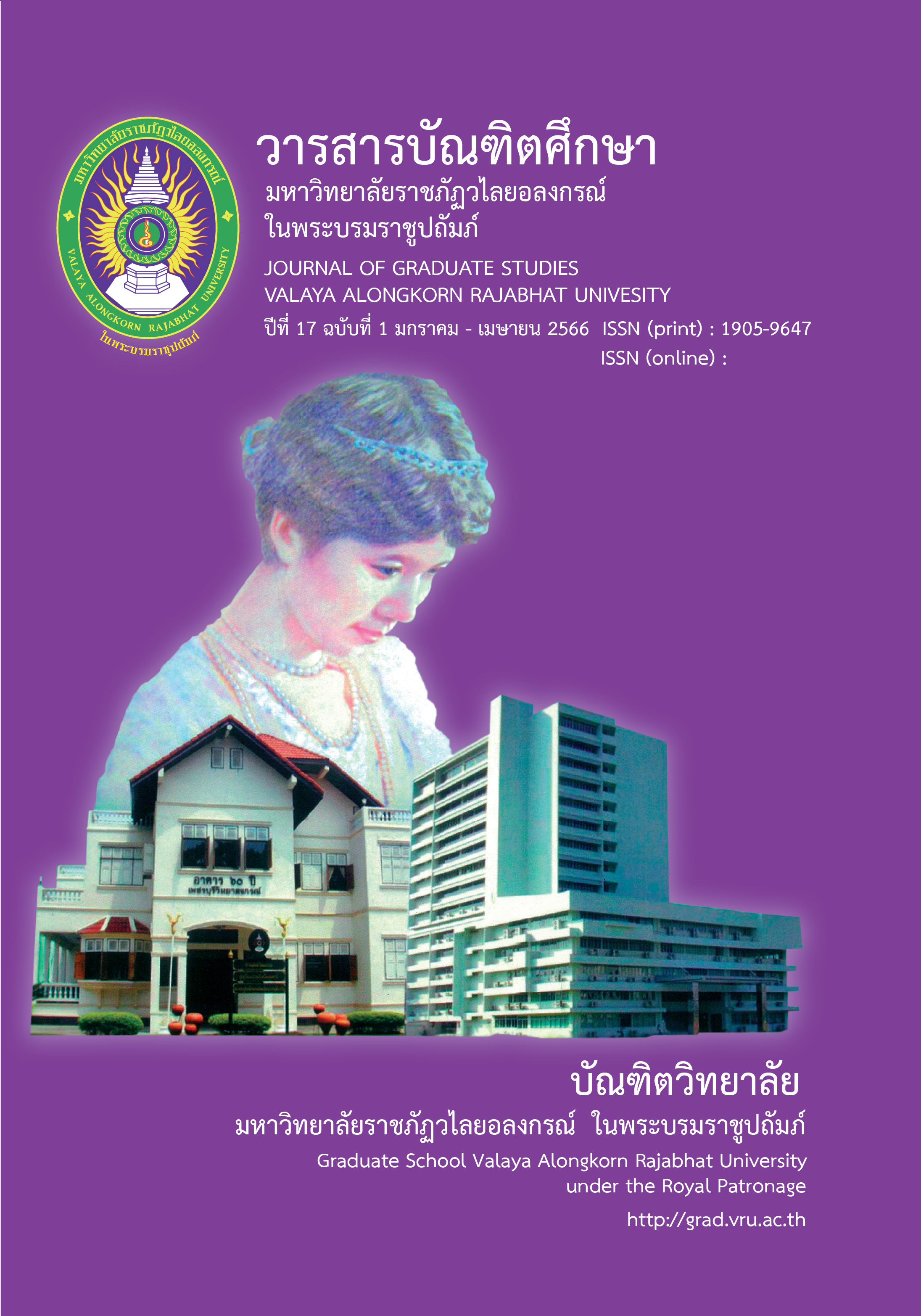THE DEVELOPMENT OF THAI ECOTOURIST AUTHENTICITY TEST
Main Article Content
Abstract
The purposes of this study were to develop and verify the validity of the ecotourist authenticity test of Thai tourists. A sample group of 1,244 subjects from Thai tourists visiting Khao Yai National Park, Doi Inthanon National Park, Kaeng Krachan National Park, Khao Laem Ya-Mu Ko Samet National Park and Similan Islands National Park. The instrument used in the research was the ecotourist authenticity test of Thai tourists with the evaluation of construct validity by using Exploratory Factor Analysis and internal consistency (Cronbach's Alpha Coefficient). The investigation of test revealed results as follows: Alpha Coefficient=0.910, the measurement model revealed = 0.01, the p-value of = 9.34,
/df = 1.33, CFI =1.00, GFI =1.00, AGFI = 0.99, RMR = 0.005, RMSEA = 0.016 and CN =2472.46. It can be summed up that the ecotourist authenticity test is appropriate and consistent with the empirical data.
Article Details

This work is licensed under a Creative Commons Attribution-NonCommercial-NoDerivatives 4.0 International License.
บทความทุกเรื่องได้รับการตรวจความถูกต้องทางวิชาการโดยผู้ทรงคุณวุฒิ ทรรศนะและข้อคิดเห็นในบทความ Journal of Global of Perspectives in Humanities and Social Sciences (J-GPHSS) มิใช่เป็นทรรศนะและความคิดของผู้จัดทำจึงมิใช่ความรับผิดชอบของบัณฑิตวิทยาลัย มหาวิทยาลัยราชภัฏวไลยอลงกรณ์ ในพระบรมราชูปถัมภ์ กองบรรณาธิการไม่สงวนสิทธิ์การคัดลอก แต่ให้อ้างอิงแหล่งที่มา
References
Beaumont, N. (2011). The third criterion of ecotourism: Are ecotourists more concerned about sustainability than other tourists? Journal of Ecotourism. 10(2), 135-148.
Blamey, R. K. & Braithwaite, V. A. (1997). A social values segmentation of the potential ecotourism market. Journal of Sustainable Tourism. 5(1), 29-45.
Buckley, R. (1994). A Framework for ecotourism. Annals of Tourism Research. 21(3), 661-665.
Burton, F. (1998). Can ecotourism objectives be achieved? Annals of Tourism Research. 25(23), 755-758.
Chaminuka, P., Groeneveld, R. A., Selomane, A. O. & van lerland, E. C. (2012). Tourist preferences for ecotourism in rural communities adjacent to Kruger National Park: A choice experiment approach. Tourism Management. 33, 168-176.
Dolnicar, S. (2010). Identifying tourists with smaller environmental footprints. Journal of Sustainable Tourism. 18(6), 717-734.
Donohoe, H. M. & Needham, R. D. (2006). Ecotourism: The Evolving Contemporary Definition. Journal of Ecotourism. 5(3), 192-210.
Eagles, P. F. J. (1992). The travel motivations of Canadian ecotourists. Journal of Travel Research. 31(autumn), 3-7.
Fennell, D. A. (2000). What’s in a name? Conceptualizing natural resource-based tourism. Tourism Recreation Research. 25(1), 97-100.
Jaworski, B., Kohli, A. K. & Sahay, A. (2000). Market-driven versus driving markets. Journal of the Academy of Marketing Science. 28(1), 45-54.
Transparency Market Research. (2017). Ecotourism Market - Global Industry Analysis, Size, Share, Growth, Trends, and Forecast 2016 – 2024. Retrieved from https://www.transparencymarketresearch.com/ecotourism-market.html.
Weaver, D. B. & Lawton, L. J. (2007). Twenty years on: the state of contemporary ecotourism research. Tourism Management. 28(5), 1168-1179.
Yindeesuk, C. (2016). khwāmrū thatsanakhati læ phrưttikam kānthō̜ngthīeo chœ̄ng Niwēt khō̜ng nakthō̜ngthīeo chāo Thai [Ecotourism Knowledge, Attitudes and Behaviors of Thai Tourists]. Thesis for Master’s Degree. Chon Buri: Burapha University.


